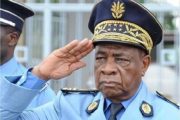Privacy Overview
This website uses cookies so that we can provide you with the best user experience possible. Cookie information is stored in your browser and performs functions such as recognising you when you return to our website and helping our team to understand which sections of the website you find most interesting and useful.


















2, February 2022
Southern Cameroons UN Situation Report 0
HIGHLIGHTS
Seven attacks on healthcare were reported, two in the North-West (NW) and five in the South-West (SW).
Two ambulance staff of an international medical NGO have been detained by State security forces following patient’s transfer duties.
NSAGs perpetrated 11 improvised explosive devices (IEDs) incidents in the NWSW, including two in Buea town in the SW, targeting communities.
The cholera outbreak in the South-West region continues to spread. As of 31 December, four health districts have confirmed cases, with 521 cases and 18 deaths.
SITUATION REPORT
Fighting continues between State security forces (SSFs) and non-State armed groups (NSAGs). The population in the NWSW continues to suffer the impact of armed clashes and insecurity, ranging from exposure to crossfire and abductions to explosions from improvised explosive devices (IEDs). The UN Department of Safety and Security (UNDSS) reported 11 IEDs incidents in December; four in the NW and seven in the SW. While most incidents had SSFs as target, three incidents reported in the Fako division directly targeted populations. On 6 December, allegedly NSAG fighters detonated an IED at Soppo market. A second IED was discovered at the market and deactivated by SSFs. On 13 December, an IED explosion was reported at a trade fair at Bongo Square in Clerks Quarter neighbourhood. An unspecified number of people were injured. These attacks and others reported in Buea in the past months targeting civilians are instilling fear among the population. Imposed Monday ghost town rule declared by NSAG are still in place.
The cholera outbreak in Ndian division, South-West, is aggravating. As of 31 December, 521 cases, including 18 deaths, were reported. This is an important increase in comparison to 105 reported cases at the end of November. Humanitarian actors continue to support Ekondo Titi and Bakassi health districts in Ndian division. Access is worsened by poor roads while maritime access is challenging with the presence of pirates and limited resources to reach affected areas. The sea route was considered the safest means of access to the Ekondo-Titi subdivision, used by humanitarian organizations operating in Bamusso as an alternative to roads where there is a high number of NSAG attacks. The presence of pirates on this route has increased security risks for partners and will most likely hinder rapid and safe humanitarian access and the ability to implement activities, especially cholera outbreak related ones.
Attacks on healthcare continued in the NWSW. On 5 December, SSFs reportedly made an incursion into St Mary Soledad hospital in Alakuma- Mankon, NW. During this incident, wards were searched, Patients were harassed and two suspected NSAG fighters who were receiving treatment were arrested. On 26 December, SSFs stopped an international medical NGO ambulance at Nguti checkpoint, Kupe-Muanenguba, transporting an injured man from Ashum village in Tinto subdivision, Manyu division to a hospital in Mutengene, in Tiko subdivision. Security forces retrieved the patient and ordered the NGO team to go back to Mamfe, Manyu division. The ambulance driver and the nurse were arrested and detained for investigation. Seven attacks on healthcare were reported in the NWSW. These incidents remain a serious threat to the availability of timely and equitable healthcare in the restive regions.
Displacement continues due to insecurity and violence. Protection continues to be a major concern as civilians continue to be arbitrarily arrested, assaulted, abducted for ransom, and denied access to basic services. Over 2,490 individuals were reportedly displaced in the NWSW in December, following armed confrontations between SSFs and NSAGs, or as a preventive measure for fear of being attacked. Emergency assessments were conducted to identify priority needs of the affected population. Most of them intended to go back to their locations of origin once the situation allows, due to poor living conditions in the bush settlements and limited access to services in host communities.
Culled from UN Office for the Coordination of Humanitarian Affairs